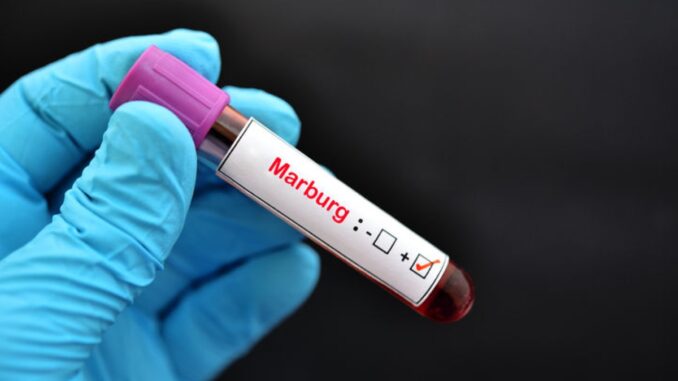
Rwanda has initiated a trial of an experimental vaccine against the Marburg virus in response to an ongoing outbreak that has claimed 12 lives since September 27. Health Minister Sabin Nsanzimana announced the start of vaccinations, focusing on high-risk individuals, particularly healthcare workers and close contacts of confirmed cases.
The vaccine, currently in phase 2 trials, was provided by the U.S.-based Sabin Vaccine Institute. Approximately 700 doses have been shipped to Rwanda, with trials already underway in neighboring Uganda and Kenya, reporting no safety concerns to date. Rwandan health officials and the standards bureau have tested the vaccines before deployment.
The outbreak has resulted in 46 confirmed cases, with 29 in isolation. Health authorities have identified at least 400 people who came into contact with confirmed cases. The Marburg virus, similar to Ebola, is believed to originate in fruit bats and spreads through close contact with bodily fluids of infected individuals or contaminated surfaces.
Without treatment, Marburg can be fatal in up to 88 percent of cases. Symptoms include fever, muscle pains, diarrhea, vomiting, and in some cases, extreme blood loss. The World Health Organization reports that Marburg outbreaks have previously occurred in several African countries, including Tanzania, Equatorial Guinea, Angola, and the Democratic Republic of Congo.
